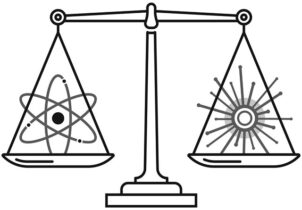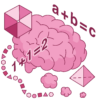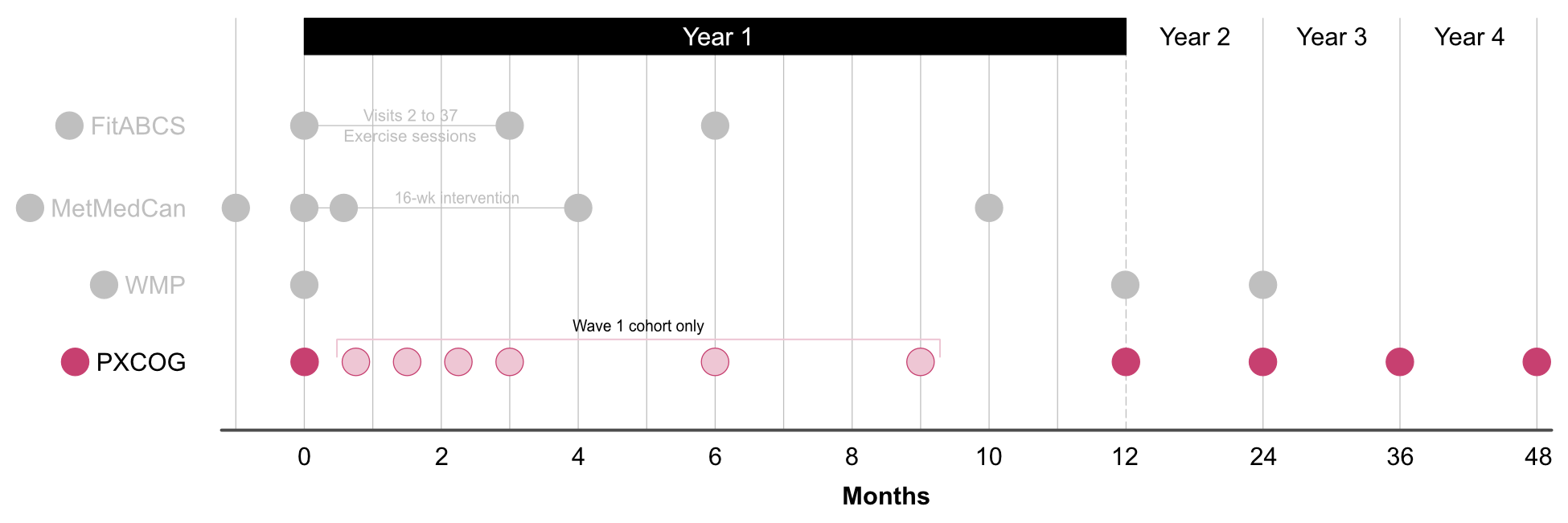
What is being studied?
We will compare symptom burden/toxicity, neurocognitive change, and functional outcomes between brain tumour survivors treated with XRT (Photon Radiation Therapy) and those treated with PBRT (Proton Beam Radiation Therapy).
What will my child need to do?
Your child would need to come to SickKids for up to 5 visits over 4 years. For some children, there may be 6 additional visits in the first year. During these visits, your child and/or yourself would do some or all of the following 4 tasks:
- Cognitive (Thinking) Tests
- Parent Questionnaires
- Patient Assessments (Symptoms/Toxicities)
- Clinician Assessments (Symptoms/Toxicities)

- Your child will do some tasks with a trained staff member. These tasks provide information about your child’s thinking abilities. Some tasks are on the computer while other tasks involve looking at pictures, completing puzzles, answering questions, or using a paper and pencil. Your child will also be asked to fill out questionnaires asking about their own feelings and behaviour.
- You and your child will be asked to complete 20 questionnaires. The questionnaires evaluate your child’s thinking and problem-solving abilities, behaviour, and functioning across a range of areas (e.g., paying attention, performing in school, completing tasks of daily living). Some of the questionnaires you will be asked to complete ask about your child’s development, health, and family history (such as current medications, academic services, family size).
Also, we will ask for your permission to give a questionnaire to your child’s teacher. This will help us get ratings of your child’s behaviour in the classroom. In order for us to contact your child’s teacher, you will need to provide us with a signed permission form. Please note that even if you sign this consent form to participate in the study, you have not given us permission to contact the teacher. That process is separate from this consent process.
- Symptom assessments, that take place at up to ten (10) time points, assess your child’s experience of physical symptoms (e.g., pain, nausea) and feelings (e.g., worry, sadness) that can happen during and after treatment. You and your child (if your child is old enough) will complete these items on paper or on a computer or tablet. Some of these symptom assessments will be done at the same time as the annual cognitive (thinking) evaluations.
- We will ask your child’s doctor or nurse to answer questions about symptoms your child experiences due to the brain tumour and treatment.
- Cognitive (Thinking) Tests

- Your child will do some tasks with a trained staff member. These tasks provide information about your child’s thinking abilities. Some tasks are on the computer while other tasks involve looking at pictures, completing puzzles, answering questions, or using a paper and pencil. Your child will also be asked to fill out questionnaires asking about their own feelings and behaviour.
- Symptom assessments
- You and your child will be asked to complete 20 questionnaires. The questionnaires evaluate your child’s thinking and problem-solving abilities, behaviour, and functioning across a range of areas (e.g., paying attention, performing in school, completing tasks of daily living). Some of the questionnaires you will be asked to complete ask about your child’s development, health, and family history (such as current medications, academic services, family size).
Also, we will ask for your permission to give a questionnaire to your child’s teacher. This will help us get ratings of your child’s behaviour in the classroom. In order for us to contact your child’s teacher, you will need to provide us with a signed permission form. Please note that even if you sign this consent form to participate in the study, you have not given us permission to contact the teacher. That process is separate from this consent process.
- Symptom assessments, that take place at up to ten (10) time points, assess your child’s experience of physical symptoms (e.g., pain, nausea) and feelings (e.g., worry, sadness) that can happen during and after treatment. You and your child (if your child is old enough) will complete these items on paper or on a computer or tablet. Some of these symptom assessments will be done at the same time as the annual cognitive (thinking) evaluations.
- Clinician assessments
- We will ask your child’s doctor or nurse to answer questions about symptoms your child experiences due to the brain tumour and treatment.
Who can participate in this study?
Your child can take part in the study if they:
- Were diagnosed with a brain tumour (except types in exclusion)
- Have either English as their native language or has had at least two years of schooling in English
Furthermore, specific study waves also have their own requirements:
- Wave 1:
- 3-18 years old
- Treated within 6 months of initial cranial or craniospinal XRT start date at enrollment
- Wave 2:
- 3-25 years old
- 0-18 years of age inclusive at XRT start date
- 3-7 years after initial cranial or craniospinal XRT start date (at enrollment)
- Wave 3:
- 8-30 years old
- 0-18 years of age inclusive at XRT start date
- 8-12 years after initial cranial or craniospinal XRT date (at enrollment)
Your child cannot take part in the study if they:
- Diagnosed with high grade glioma (grade III-IV), pontine/brainstem glioma or ATRT
- History of prior courses of cranial or craniospinal RT
- History of PBRT
Reimbursement
- $15 or $20 gift card after study visits depending on visit schedule
- Summary of cognitive (thinking) test results
- Reimbursement for parking/travel up to $116 per visit
For more information about the study, contact a study team member:
- Cynthia de Medeiros (Research Manager) at 416-813-7396
- Fatma Al-Rubeye (Research Assistant) at 416-813-1500 ext 301741
- Lisa Nham (Research Assistant) at lisa.nham@sickkids.ca
or send us a message using the form at the bottom of this page.
Study timeline

Thank you for reading!
If you’re interested in participating or have any questions, please email/call with the address/number above or use the form below.

